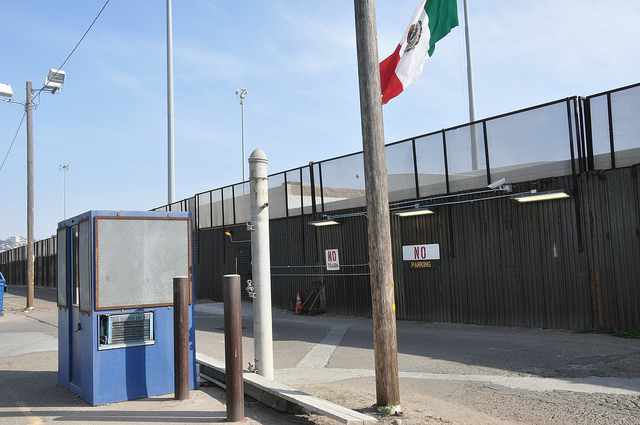
A Mexican church leader has provided fresh insight into the ways in which Christians in Latin America come under pressure in areas controlled by drug cartels.
The pastor, who wished to remain anonymous, told World Watch Monitor about the “tax” churches can be charged to be allowed to remain open.
“Charging this ‘tax’ to pastors and churches is now a common occurrence,” he said. “The cartels are very well organised and they can follow your every move. One cannot go anywhere alone; protection is needed all the time.
“We are talking about places that are very close to the country’s capital, which means that a problem that used to be typical of the northern cities bordering the United States is now becoming an issue for the rest of Mexico.”
Dennis Petri, Latin America analyst for the charity Open Doors, which supports Christians under pressure for their faith, said that although the practice has become “very common”, most cases go unreported.
“This is a recurrent theme in most of the interviews I have conducted in recent years – and by far the most significant threat to Church life in Mexico,” he said. “According to government officials, only 10% of the cases are formally brought to court. Most of the people I interviewed indicated that this is a massive phenomenon affecting virtually all churches, while many others appear too afraid to speak about it.
“Church services are not allowed in certain areas and there are reports of churches that have been closed by order of drug cartels. Moreover, there are reports of individuals who are prohibited from attending church services, or have the obligation to report to the drug cartels whenever they visit a particular church.”
Thirty-one church leaders have been killed in Mexico in the past decade, according to the Centro Católico Multimedial.
One recent victim, Catholic priest Joaquin Hernández Sifuentes, disappeared on 3 January in Saltillo, in the state of Coahuila. Nine days later, his body was found, alongside two others, in Parras, 150km west of Saltillo.
“Speaking out against injustice – whether it is violence, drug consumption, drug trafficking or organised crime – and above all speaking publicly, from the pulpit or in another setting, is extremely dangerous and can result in many forms of intimidation by drug cartels, including beatings, attacks on houses of church leaders, or even killings,” explained Petri.
According to an article by El Diario de Coahuila on 22 February, 20 terrorist groups worldwide have links with Colombian and Mexican drug trafficking cartels. Using information from a 2014 report by the US Drug Enforcement Administration, the article shows how militant Islamic groups such as Al-Qaeda in the Islamic Maghreb and Hezbollah are being “sponsored” by cartels like the Sinaloa Cartel.
“The links between drug trafficking and ‘narco-terrorism’ continue to grow and it’s not a new trend,” said Open Doors’ Rossana Ramirez. “The danger for Mexico is that terrorist know-how from abroad is likely to increase criminal firepower and, consequently, threaten Mexican stability. In this context, any communities and churches involved in tackling organised corruption and crime are likely to be victims of reprisals.”
Mexico is 40th on the 2017 Open Doors World Watch List of the 50 countries in which it is most difficult to be a Christian. According to Petri, violence related to organised crime is the most significant threat to Latin America’s Christians.
Learn more: Latin American Christians need protection from organized crime